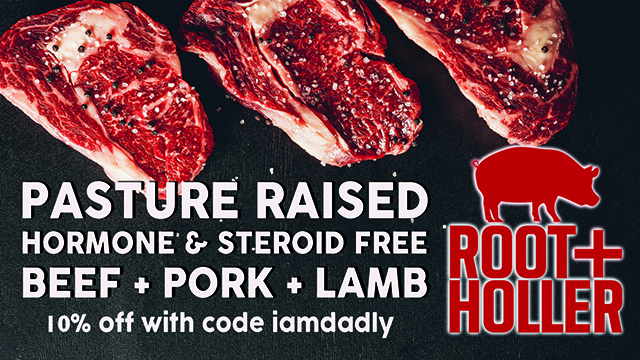Your habits are modern-day solution to ancient desires.

Here is today’s Game and what’s going on.
Here is what I discovered today in our Dadly Daily Declaration readings from Chapter 10 of Atomic Habits by James Clear. The title of this chapter is “How to Find and Fix the Causes of Your Bad Habits”
Today’s chapter continues delving in to the Second Law of Behavior Change: Make It Attractive. Here are a few highlights from today’s readings:
- Every behavior has a surface level craving and a deeper, underlying motive.
- Some of our underlying motives include:
- Conserve energy
- Obtain food and water
- Find love and reproduce
- Connect and bond with others
- Win social acceptance and approval
- Reduce uncertainty
- Achieve status and prestige
- A craving is just a specific manifestation of a deeper underlying motive. At a deep level, you simply want to reduce uncertainty and relieve anxiety, to win social acceptance and approval, or to achieve status.
- Look at nearly any product that is habit-forming and you’ll see that it does not create a new motivation, but rather latches onto the underlying motives of human nature.
- Find love and reproduce = using Tinder
- Connect and bond with others = browsing Facebook
- Win social acceptance and approval = posting on Instagram
- Reduce uncertainty = searching on Google
- Your habits are modern-day solution to ancient desires. The underlying motives behind human behavior remain the same.
- Here’s the powerful part: there are many different ways to address the same underlying motive. Your current habits are not necessarily the best way to solve the problems you face; they are just the methods you leaned to use. Once you associate a solution with the problem you need to solve, you keep coming back to it.
- Habits are all about associations. These associations determine whether we predict a habit to be worth repeating or not.
- Determining the appropriate response happens in an instant. Every action is preceded by a prediction. Life feels reactive, but it is actually predictive. All day long, you are making your best guess of how to act given what you’ve just seen and what has worked for you in the past. You are endlessly predicting what will happen in the next moment.
- Our behavior is heavily dependent on these predictions. Our behavior is heavily dependent on how we interpret the events that happen to us, not necessarily the objective reality of the events themselves. The cause of your habits is actually the prediction that precedes them.
- These predictions lead to feelings, which is how we typically describe a craving — a feeling, a desire, an urge. Feelings and emotions transform the cues we perceive and the predictions we make into a signal that we can apply. They help explain what we are currently sensing.
- You sense cues all the time, bit it is only when you predict that you would be better off in a different state that you take action.
- A craving is the sense that something is missing. It is the desire to change your internal state.
- Desire is the difference between where you are now and where you want to be in the future. Even the tiniest action is tinged with the motivation to feel differently than you do int he moment.
- The specific cravings you feel and habits you perform are really an attempt to address your fundamental underlying motives. Whenever a habit successfully addresses a motive, you develop a craving to do it again. Habits are attractive when we associate them with positive feelings.
- The key to finding and fixing the causes of your bad habits is to reframe the associations you have about them. If you can reprogram your predictions, you can transform a hard habit into an attractive one.

Those gems lead us to today’s Dadly Daily Declaration:
You can make hard habits more attractive if you can learn to associate them with a positive experience. Sometimes all you need is a slight mind-set shift.
One way is to change one word in your mind set. For instance, instead of saying you “have” to get up early for work, say you “get” to get up early for work. By simply changing that one word, you shift the way you view that event. You transition from seeing that behavior as a burden and turn it into an opportunity.
Reframing your habits to highlight their benefits rather than their drawbacks is a fast and lightweight way to reprogram your mind and make a habit seem more attractive.
- Exercise: Instead of associating exercise as being a challenging task that drains energy and wears you down, frame exercise as an activity that develops skills and builds you up. Instead of telling yourself, “I need to go run in the morning,” say “It’s time to build endurance and get fast.”
- Finance: Saving money is often associated with sacrifice. However, associate saving money with freedom rather than limitation. The money you save this month increases your purchasing power next month.



